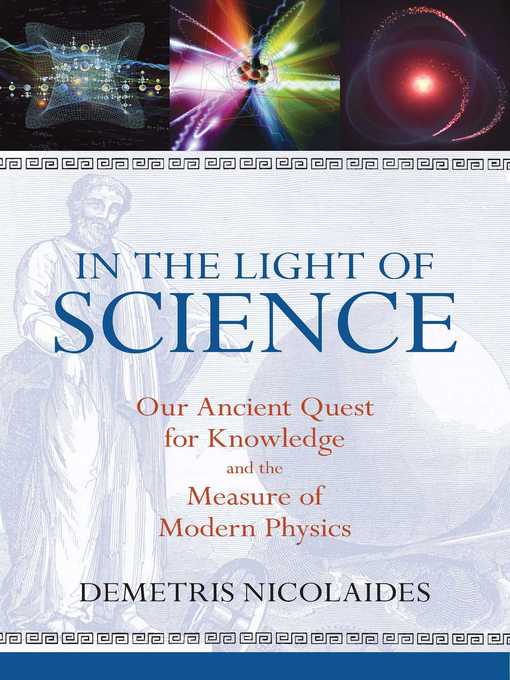
In the Light of Science
Our Ancient Quest for Knowledge and the Measure of Modern Physics
کتاب های مرتبط
- اطلاعات
- نقد و بررسی
- دیدگاه کاربران
نقد و بررسی

September 8, 2014
Bloomfield College physics professor Nicolaides knits together history, religion, science, and philosophy in this casual exploration of ancient science, which compares the ideas of Greek philosophers and modern physics. His history sweeps from 200,000 years ago—an “era of pure survival”—through the development of prehistoric art and religion to the growth of cities and civilization in the Fertile Crescent. Expanding leisure allowed the creation of writing, commerce, and, Nicolaides says, for the Greeks, the scientific method. Well-traveled and familiar with various religions, the Greeks, beginning with the pre-Socratics, regarded “mythological” explanations for natural events as illogical. This “scientific outlook” presaged the beginnings of science around 2600 years ago. The rest of the book compares early Greek notions of nature to concepts in modern physics, such as atomic theory, quantum mechanics, relativity, the unified field theory, and the Higgs boson. Throughout, Nicolaides emphasizes the idea that religion should be seen an intermediate step along an evolutionary path to a truly rational world. Readers looking for an informal introduction to the early history of science and its philosophical links to modern physics will find an accessible introduction here.

October 1, 2014
This slim volume is an engaging crosswalk between key Pre-Socratic Greek philosophers' concepts of the natural world and current cutting-edge physics research. Before physics professor and first-time book author Nicolaides discusses the philosophers, he narrates a concise and fascinating history of the development of the human species and of the ongoing evolution of our knowledge base from mythology to science. In addition to the well-known drivers of human civilization, such as fire, agriculture, and urbanization, the author asserts that the Greek language, and Greeks' bent towards critical thinking, made their ancient culture the perfect birthplace of scientific thought. He makes convincing cases, including the links between Anaximander's concept of the infinite and the influence of the Higgs boson on other particles, Heraclitus's concept of constant change and Werner Heisenberg's uncertainty principle, as well as more typical discussions of Democritus's concept of the atom and Pythagoras's ratios of the planets. VERDICT This book's unusual approach to history, philosophy, and modern physics should be enjoyable to readers from high schoolers through adult.--Sara R. Tompson, Jet Propulsion Laboratory Lib., Archives & Records Section, Pasadena, CA
Copyright 2014 Library Journal, LLC Used with permission.

























دیدگاه کاربران